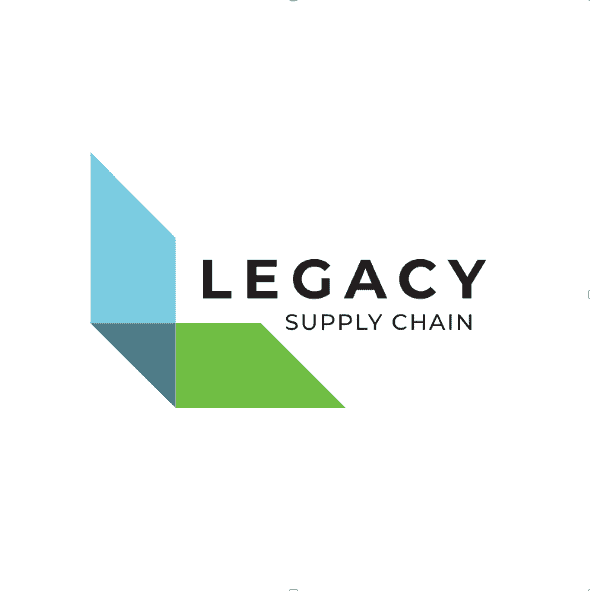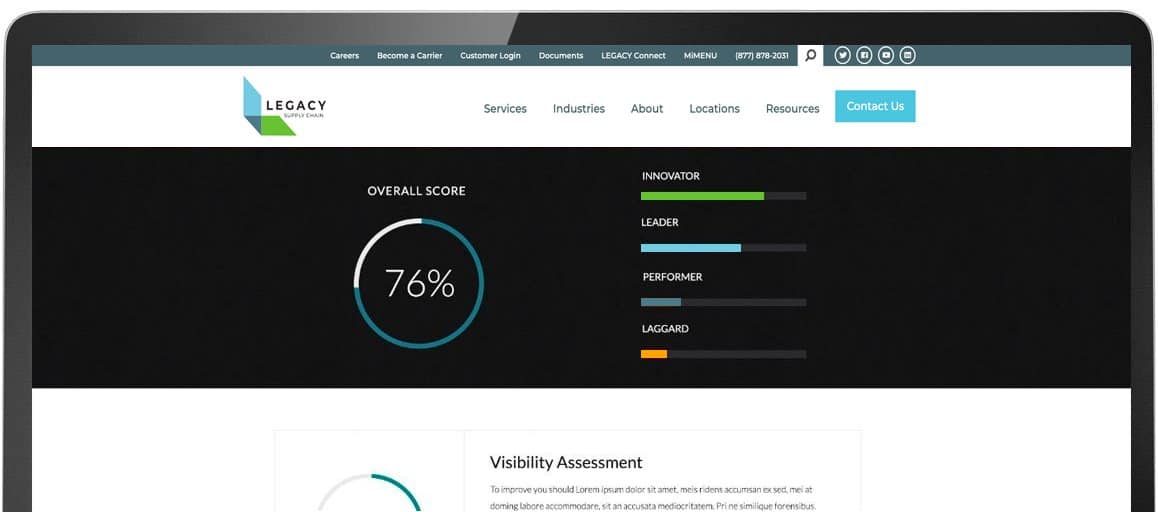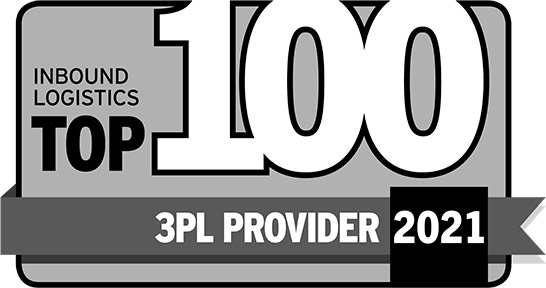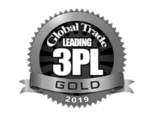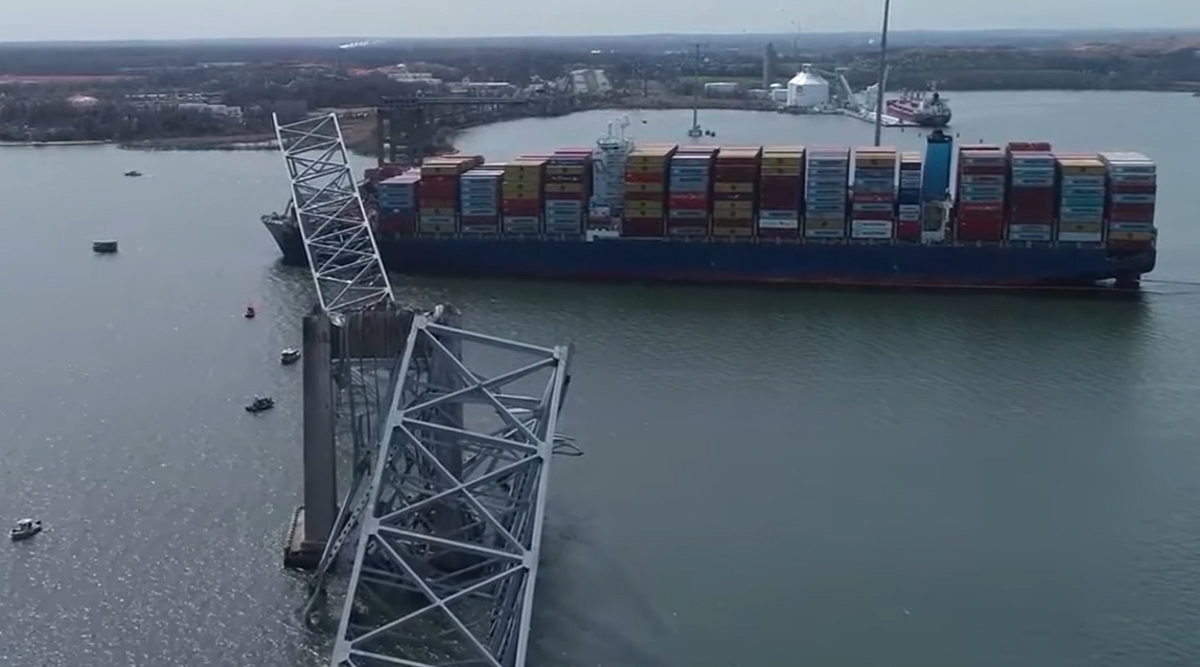9 Benefits to Outsourcing eCommerce Fulfillment to a 3PL
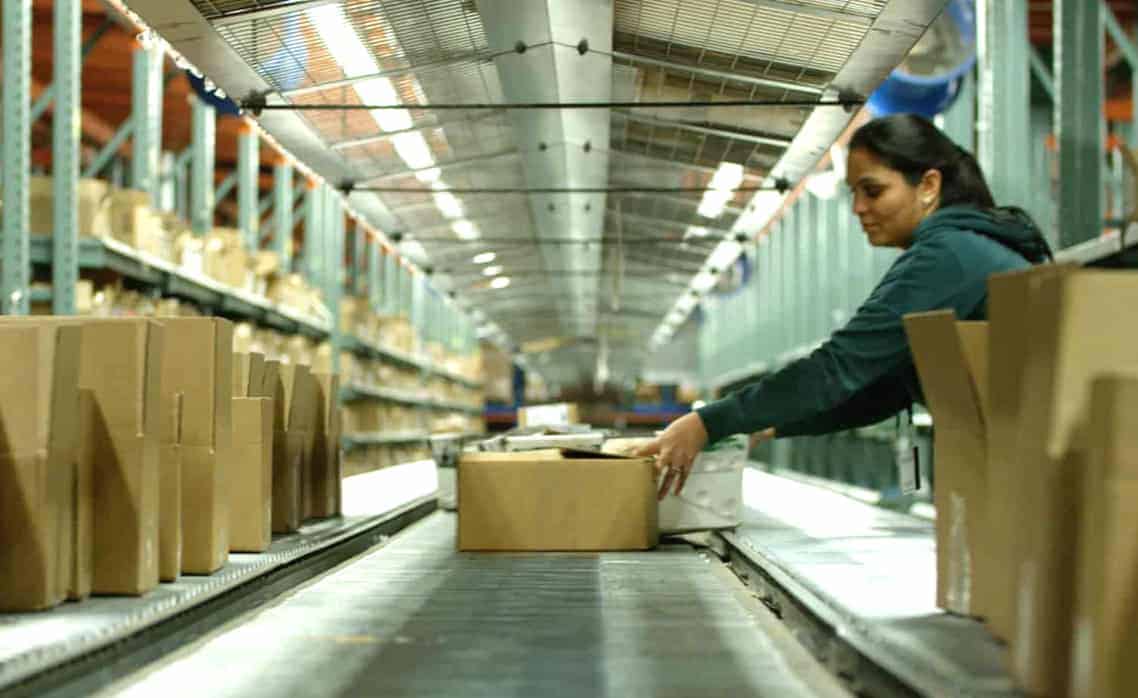
In the fast-paced world of eCommerce fulfillment, the secret to success is to have a solid infrastructure consisting of people, processes and systems in place — one capable of scaling up or down to meet the diverse needs of both your business and your customers. But building such an infrastructure is often easier said than done, which is why many merchants have turned to third-party logistics (3PL) providers for support.
In this article, we’ll highlight the benefits of outsourcing fulfillment services to a 3PL, as well as offer insights into common 3PL services, how to choose the right provider and more.
- What Is Outsourced Fulfillment?
- Why Should You Outsource Fulfillment?
- When Should You Outsource Fulfillment?
- How to Vet Potential 3PL Partners
- How to Make the Most of Outsourced Fulfillment Services
What Is Outsourced Fulfillment?
Outsourced fulfillment, also known as third-party fulfillment, refers to the practice of contracting with a third-party company — known as a third-party logistics provider — to handle various aspects of the order fulfillment process for an eCommerce, retail, wholesale or distribution business.
Common Third-Party Fulfillment Services
Let’s take a look at the types of outsourced fulfillment services 3PL providers typically offer:
- Order management, which comprises all processes and activities related to receiving, processing, tracking and fulfilling customer orders
- Inventory management, which is the practice of overseeing and controlling a company’s inventory, including both raw materials and finished product, to ensure efficient operations and meet customer demand
- Transportation optimization, which is the process of strategically managing the movements of goods and materials between locations in an efficient, cost-effective way
- Pick, pack and ship, an order fulfillment strategy in which workers select items from inventory based on customer orders, package them and prepare them for shipment
- Kitting and assembly, an order fulfillment strategy in which workers assemble product bundles or “kits” by grouping together items that are commonly sold together or that are being sold together as part of a special offering
- Drop shipping, an order fulfillment strategy in which, rather than keep the products it sells in stock, a merchant purchases products from a third-party supplier, who then ships them directly to the customer
- Last-mile delivery, the final stage of the order fulfillment process that involves transporting goods from a warehouse or distribution center to their final destination
- Returns management, also known as reverse logistics, is the process of managing the return of products from customers to the manufacturer or merchant
Why Should You Outsource Fulfillment?
You may be wondering — why should my company bother with outsourcing fulfillment, when we could just as easily handle it ourselves?
It’s a fair question, but there’s a straightforward answer: Many businesses, whether large, mid-sized or small, lack the existing infrastructure needed to support complex fulfillment processes in a high-quality way. Though it may seem simple in theory, order fulfillment — eCommerce or otherwise — depends on a combination of established procedures, advanced technology and highly trained personnel to successfully execute.
Your company could invest in its own fulfillment infrastructure, though it would take substantial time, effort and financial resources to create anything that could rival what a third-party logistics company already has in place. Even if your organization does already have systems in place to support fulfillment, scaling these systems up to accommodate long-term, sustained growth — or even short-term growth, such as spikes in seasonal demand — can be taxing on company resources.
There’s also the matter of expertise to consider. Supply chain disruption in all its many forms is a real and present threat to on-time delivery and customer satisfaction and can be difficult to navigate without past experience to draw from. 3PL companies are fully staffed by logistics professionals who have proven, on-the-job experience in helping their clients weather the worst disruption and consistently meet customer expectations.
Last, though certainly not least, there’s something to be said for not having to worry about managing fulfillment on your own. Unless you also operate a 3PL company, odds are good you didn’t go into business with the goal of overseeing order fulfillment indefinitely. Instead, it’s more likely that your top priorities are consistently improving upon your products and ensuring that your customers are satisfied. By outsourcing fulfillment to a specialist, you can focus on what really matters: meeting your goals and growing your business.
6 More Benefits to Third-Party Fulfillment
Still unsure whether it makes sense for your business to outsource fulfillment? Let’s look at some additional ways you stand to benefit:
- Lower Operating Costs: As discussed, outsourcing fulfillment offers substantial cost savings because you can utilize a 3PL provider’s existing technology, personnel and systemic resources, rather than have to build your own logistics infrastructure from the ground up. 3PLs can also leverage their existing network of industry connections to secure more favorable rates for their clients, such as volume-based discounts on last-mile delivery services. Though there are costs to working with a 3PL, these are often outweighed by the ROI of fast, efficient fulfillment. discounts on last-mile delivery services. Though there are costs to working with a 3PL, these are often outweighed by the ROI of fast, efficient fulfillment.
- Advanced Technology: Fulfillment operations can be complex and require the use of advanced technology such as order, warehouse and transportation management systems and data analytics tools. By partnering with a 3PL, you can take full advantage of their existing investment in these systems, which support real-time tracking of orders and inventory, data analysis and automated reporting. The end result? Data-driven decision-making around eCommerce fulfillment, more streamlined logistics operations and superior service.
- Enhanced Efficiency: In addition to their advanced systems, which can automate and streamline rote fulfillment tasks, 3PLs offer economies of scale, reducing costs related to labor, infrastructure and transportation. This combination of factors enables merchants to optimize their inventory levels and achieve greater scalability, ultimately leading to more efficient operations, improved service levels and stronger competitive standing.
- Greater Scalability: Outsourcing eCommerce fulfillment enables businesses to flexibly adjust operations to meet fluctuating demand without the need for significant capital investments in additional facilities, staff or technology, ensuring efficient and cost-effective service during both peak and off-peak periods.
- Expanded Coverage: For businesses looking to grow their reach and break into new markets, outsourced fulfillment is a natural choice. 3PLs offer access to a network of distribution and fulfillment centers and transportation resources that make it easy for companies to expand their existing coverage without investing in additional infrastructure. These strategically located fulfillment hubs and established carrier relationships enable merchants to reach new geographic regions and markets without ever compromising on the quality of service to their newly broadened customer base.
- Value-Added Services: Many 3PL providers offer a range of value-added services, such as kitting and assembly, bulk order processing, custom packaging and subscription boxes, to support merchants’ unique needs. Not only does partnering with a 3PL grant you access to these services, but it also ensures you that you receive the specialized support you need for delicate items, large items, high-value items and even hazardous materials.
When Should You Outsource Fulfillment?
We’ve sufficiently covered why you should consider third-party fulfillment services — but how do you know whether now is the right time to outsource? We’ve put together this list of self-evaluative questions to help steer you in the right direction:
- What customer service-level standards do we need to meet — and are we able to consistently meet them?
- Have we outgrown our existing fulfillment infrastructure? Are we still able to consistently meet performance goals and deliver within our customers’ shipping windows?
- Do we have the ability to scale our services according to seasonal demand or business growth?
- What is our current geographic reach? Are there new markets or regions we want to target, but currently do not have a presence in or the infrastructure to support?
- Do we have the means to invest in advanced technology on our own?
- What are our current fulfillment costs, and how do they compare to the cost of partnering with a 3PL?
- Do our order volumes meet 3PL service minimums?
How to Vet Potential 3PL Partners
Deciding whether to outsource fulfillment is only the beginning — the next step is to find a suitable fulfillment partner. When comparing various 3PL providers, try asking them the following questions so that you can make an informed decision:
- What services — both standard and value-adding — do you offer?
- Do you have prior experience working with companies of our size and/or in our industry? (And can you provide examples or references?)
- What is your geographic reach, and where are your fulfillment centers located?
- What is your employee retention rate, and how does it compare to the industry average?
- What systems does your technology stack include?
- Does your technology stack include cybersecurity systems for data security and loss prevention?
- How much volume can your order fulfillment systems handle?
- What key fulfillment metrics do you track?
- What are your shipping capabilities and your carrier relationships?
- Can you leverage your carrier relationships to secure discounted rates?
- Can you achieve and maintain Seller-Fulfilled Prime (SFP) status with Amazon?
- What are your service-level agreements?
- What is your disaster recovery and contingency plan?
- What are your company’s culture and core values (and do they align with ours)?
Once you’ve narrowed down your list, you’ll want to send out a request for proposal (RFP) to your most likely candidates to get an accurate assessment of how they’ll meet your company’s particular fulfillment needs.
A word of caution: Not all RFPs are made alike, and a poorly put-together RFP could prevent you from finding the right third-party fulfillment provider for your business. To increase your chances of finding the right partner, we encourage you to read our guide on crafting the perfect RFP.
How to Make the Most of Outsourced Fulfillment Services
No matter which 3PL provider you choose to work with, there are a few simple things you can do to set your partnership up for success:
- The first is to give your 3PL as much advance notice as possible about any changing business requirements, as this will give them sufficient time to adjust their strategy to accommodate those changes.
- The second is to ask your 3PL for market insights. Given their years of experience, their connections within the logistics industry and their access to advanced technology, your 3PL should be able to provide you with valuable information about changes in the market and how to adapt to them, as well as guidance on how to approach entering a new market.
- The third and final — and perhaps most important — is to be open to change. Continuous innovation is critical to both the success of your business and to your relationship with your outsourced fulfillment provider, so lean into conversations about how to improve your fulfillment processes, safety practices, company culture and more.
For even more insights into how to create a winning outsourced fulfillment strategy and choose a 3PL partner capable of meeting all of your needs, contact the Legacy team today. With over 40 years of industry experience to our name, we know what it takes to build dynamic supply chains while providing exceptional service.
Our free, 3PL RFP template includes all of the key components you need to build a perfect RFP — one that clearly articulates your business challenges and goals.
Get Insights. Stay Ahead.
Get the latest news and insights via email on warehouse improvement, transportation optimization, labor strikes and international shipping rate changes.Popular Posts
Search Posts
-
2024 Q1 Freight Landscape: Trends, Challenges, and Predictions
As the first quarter of 2024 comes to an end, here are some observations over the past few months as well as predictions about the trucking...
+ Read more -
Baltimore Bridge Impact Assessment – Update
Following the recent Baltimore Bridge collapse and subsequent port closures, we want to keep our customers informed about the situation and...
+ Read more -
Global Momentum Builds for Charge on Global Shipping Sector’s CO2 Emissions
A growing coalition of 47 countries, including key players like the European Union, Canada, Japan, and various Pacific Island nations, is...
+ Read more
